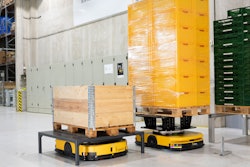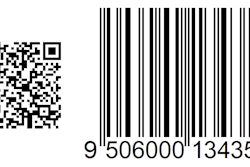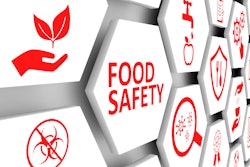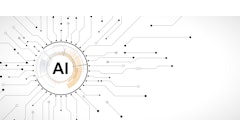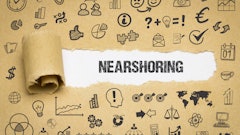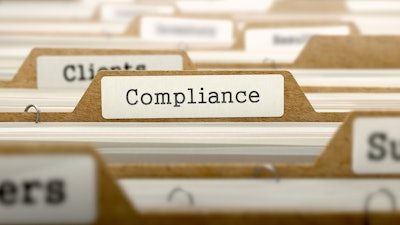
In October 2024, McDonald's Big Macs, certain Boar’s Head meats, and Krusteaz frozen Belgian waffles were recalled, making national news.
All in all, the FDA recalled a total of about 22 food products the same month. Next month, a whole new batch of food products will likely be recalled – and so on, and so on.
Product recalls are not only regular and recurring, but they are also the Achilles heel for food producers and the third-party logistics providers (3PLs) who work hard to clean the mess these recalls cause. Artificial intelligence (AI) is a newfound boon that helps ameliorate the woes and cumbersome follow-up that come with a food product recall.
After a recall, the hard work comes when the purveyors and food suppliers need to act, getting their food stuff off the shelves and identify the source of the problem products to ensure no more of the problem products make it to market. They also have to communicate with customers who may have purchased recalled items to convey the danger of food products that are in their own pantries. These tasks are often delegated to 3PLs, who work for food purveyors to act fast and seize control of the recalled products.
AI can greatly assist efforts to track and trace recalls and help companies remain compliant in several ways.
Harnessing AI for enhanced supply chain visibility and recall prevention
Visibility and control are recurring watchwords for today’s shippers and their 3PL partners. Enhanced supply chain visibility and recall prevention provide immense value to shippers by minimizing operational risks, reducing costs, and safeguarding their reputation. Real-time tracking enables swift identification and isolation of affected products during recalls, significantly cutting down response times and financial losses.
AI-powered systems can provide real-time visibility across the supply chain, tracking food products from origin to destination. This real-time insight enables 3PLs to quickly identify which shipments are impacted, reducing the time it takes to locate and isolate affected products, affording enhanced supply chain visibility and recall prevention for shippers.
In addition to the visibility that AI provides, predictive analytics further enhance this capability by flagging potential issues before they escalate, allowing shippers to act proactively and take better control of their shipments. Machine learning algorithms can analyze patterns in product quality, temperature variations, and contamination risks, flagging potential issues even before they result in a recall. This predictive capability allows 3PLs to act proactively to prevent recalls or prepare for potential incidents.
Additionally, AI-enhanced systems and blockchain technology ensure transparency and compliance, fostering trust with customers and regulatory bodies by providing additional tracking and verification tools. AI-enhanced blockchain systems help 3PLs maintain an immutable, shared record of every transaction in the supply chain, enabling precise tracking of contaminated products to minimize the scope of recalls.
Ultimately, these tools help shippers streamline operations, reduce waste, and maintain a competitive edge in the market.
Finding needles in the haystack
Once the word comes out that a product has been recalled, the hard work begins. Often a 3PL is called upon to help. The 3PL must find the needles in the haystack, namely the products that are in transit, in warehouses, in distribution, or on the shelves, and help let the public know that the product that they purchased, on their shelves at home, has been recalled. The product batch must be found, tracked, and traced, and seized to prevent any undue harm or dissemination.
It’s not an easy undertaking, but AI can help – a lot.
With AI algorithms that can identify affected batches, 3PLs can automatically initiate recalls when a food safety issue is detected, notifying all relevant parties promptly. Automated workflows can send alerts to suppliers, distributors, and customers, reducing the time needed to begin a recall.
AI-driven chatbots and natural language processing (NLP) tools can assist in customer communication, handling inquiries, and providing real-time updates on recall status. They can also engage with consumers directly, allowing for clear, consistent messaging to the public and customers.
Using AI to optimize inventory locations and mitigate supply chain risks
AI can optimize warehouse layouts and routing to quickly locate affected products and remove them from inventory. With automated identification of affected batches or lots, AI helps ensure that only contaminated items are isolated, reducing wastage and potential costs.
Machine learning models can also assess the risks associated with different suppliers, transport routes, and storage conditions, alerting 3PLs to potential vulnerabilities. This data-driven approach allows 3PLs to prioritize recalls for higher-risk items.
In addition to all the above, AI algorithms can provide subsequent help by analyzing data to identify the root causes, helping 3PLs prevent future incidents. Machine learning models can evaluate the effectiveness of recall strategies and suggest improvements.
Managing recalls effectively and efficiently
By incorporating AI into recall management, 3PLs can improve how they handle food product recalls, transforming a traditionally reactive process into a proactive, streamlined operation. AI-powered systems enable real-time visibility across the supply chain, ensuring that affected products are swiftly identified and isolated, thereby reducing the risk of contamination spreading further.
Plus, it helps food suppliers be prepared for future recalls and the problems they pose. Predictive analytics allow 3PLs to anticipate potential issues before they occur, while machine learning models assess supplier and route vulnerabilities, enabling smarter risk mitigation.
Additionally, AI-enhanced serves as a 3PL’s secret weapon for the whole recall effort. It helps to minimize waste by targeting only contaminated batches, preserving unaffected inventory, and reducing financial losses. It also helps safeguard public health, protect brand reputation, and build customer trust, ultimately setting new standards for accountability and reliability in the food supply chain.
As the food industry becomes increasingly complex, AI stands out as an indispensable tool – and a secret weapon – for 3PLs committed to managing recalls effectively and responsibly.





